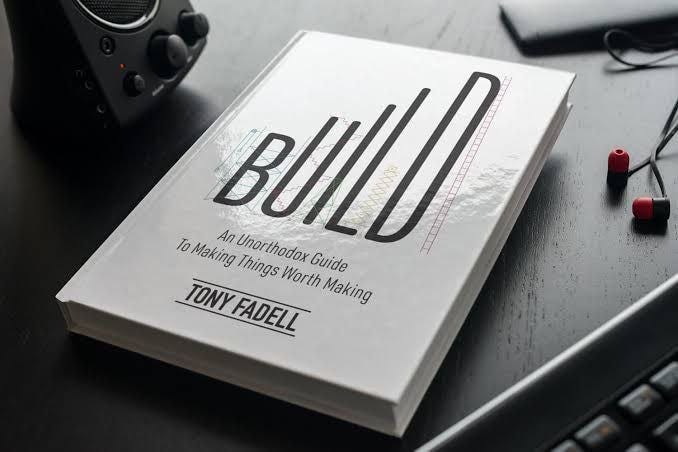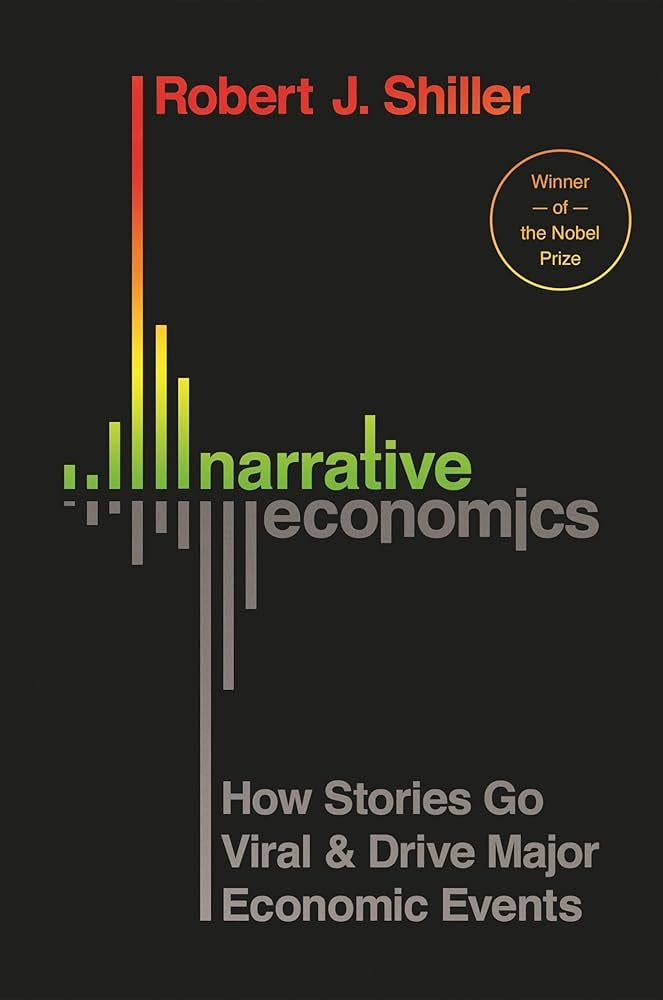How to Raise VC Money Without Losing Control
I sat down with Arman Kassym Chief Analyst at a top venture firm and a founder-turned-investor, to break down the real game of raising VC money:
Uncharted Snippets - What Actually Matters This Week 🔥
The smartest takes I found this week:
17 Contrarian Takes on Startups & VC 👀
Startup advice is mostly BS. This post breaks down the biggest myths in venture and why founders keep getting played. Expect sharp insights, unexpected lessons, and real talk on what actually drives success.Build Apps Without Coding[Video] ⚡
Non-technical? No problem. Riley Brown’s no-code guide walks through how to build a full web app using Cursor and zero coding required.
Ignore Anyone Telling You to "Target Everyone"🎯
Mass marketing sounds smart, but it’s lazy. Mark Ritson argues the biggest brands win by going deep, not broad. Go all in on your ideal customers.
This Week's Reality Check ✅
The 3 Biggest Myths About Raising VC Money
🚨 Founders keep falling for bad advice.
Here’s what’s actually true:
1️⃣ "VCs only care about revenue."
Nope. They care about risk. If you look risky, they’ll pass or structure a deal that screws you later.
2️⃣ "The highest valuation is always good."
Wrong. A bloated valuation means you’ll struggle to raise your next round. If you don’t 10x your numbers, you’re now a dead startup walking.
3️⃣ "Warm intros are the only way in."
Cold outreach works if you don’t sound like every other founder begging for money. VCs pay attention to strategic, well-researched cold emails.
The VC Game No One Warns You About 🔥
Most founders lose control of their company before they even realise it.
They don’t think they are giving up control as they are just raising capital. But every funding round is a negotiation. If you don’t know how to play the game, you are the one getting played.
Raising capital is about choosing the right investors who won’t derail your vision. Investors, much like enterprise buyers bet on trust. Here’s why trust, not numbers, closes the biggest business deals.
I sat down with Arman Kassym Chief Analyst at a top venture firm and a founder-turned-investor, to break down the real game of raising VC money:
🔥 The biggest fundraising mistakes founders make
🔥 How to avoid losing control of your startup
🔥 The brutal truth about valuations in 2025
Interview With Arman Kassym Chief Analyst
1. What Do Founders Get Wrong About Raising VC Money?
“I often encounter a disconnect among founders when it comes to understanding the relationship between the revenue they present and the risks investors take on. But at its core, it’s quite simple: the riskier your startup appears, the more attractive its potential returns need to be.”
2. Beyond the pitch deck, what actually makes a VC say ‘yes’?
“My primary focus is to assess how realistically a founder perceives the market landscape. Equally important is their level of serendipity. A dreamer who ignores market signals and isn’t prepared for the hard work ahead is always a red flag.”
3. What’s a dead giveaway that a VC will be a nightmare to work with?
“Investors who review dozens, if not hundreds, of projects each month can easily fall into the trap of seeing themselves as all-knowing gurus. That invisible crown can grow without them even realizing it. I take pride in our firm's strong sense of business empathy. In my view, if an investor shows indifference to what drives a founder to keep pedaling through all kinds of weather, it’s not a great sign for the founder.”
4. Why do high valuations backfire on so many founders?
“In 2025, high valuations remain a double-edged sword. In a cautious market, they can impress and attract attention, but they also set high expectations. If a startup falls short, it can erode trust, make future fundraising more challenging, and even lead to a loss of control. This year, it’s especially crucial to align ambitions with reality, factor in the economic landscape, and focus on sustainable growth. Play the long game.”
5. What’s a pitch that stood out immediately and why?
“The most impressive pitch I’ve seen came from a 20-year-old Harvard prodigy who proved his credit risk assessment product outperformed competing solutions, including banks' in-house systems. The icing on the cake: letters from bank executives eager to sign contracts with his startup.”
6. What’s your advice for managing burn rates in 2025?
“I don’t think my advice here will be particularly unique, and it doesn’t differ much from the recommendations for 2024: live within your means, not your dreams. Spend only on what directly supports growth or key business metrics. Strive for frugality, but don’t cut corners on strategic priorities.”
7. What’s one thing a founder can do today to get on a VC’s radar?
“Adam Grant, in his book Originals: How Non-Conformists Move the World, famously said: “The less I know you, the less I like you.”
I believe this applies to our field as well. Warm introductions certainly provide an advantage, but well-prepared cold outreach can be just as effective. At the end of the day, networking isn’t magic—it’s a tool. Social media, for instance, offers incredible opportunities. Trust me, if you consistently like and comment on an investor’s content, they will take notice.
Moreover, large investors often receive a high volume of startup pitches, meaning you’ll be competing for their attention and time. That’s why it can sometimes be more strategic to approach smaller venture firms, where you may have a better chance of standing out.”
8. What’s the biggest lie founders believe about VCs?
“I hope my colleagues will forgive me for saying this, but here’s the truth: complexity can be intimidating and is often seen as a red flag for a project. Learn to explain your product as simply as possible—don’t assume that investors are some kind of geniuses who will grasp everything from the first word. Investors meet with countless founders, which sharpens their intuition and allows them to assess a startup’s potential quickly.
However, there’s a flipside. This high volume of meetings can also lead to tunnel vision, where investors rely too much on familiar patterns and risk overlooking unconventional solutions. That’s why your job is not just to present your product clearly, but also to stand out. Show how your approach is different from the typical solutions they see every day.
Find the right balance between clarity and originality. If you can be both easy to understand and refreshingly unique, you’ll increase your chances of not only capturing an investor’s interest but also standing out among dozens of other startups.”
9. What’s a founder trait that VCs say they want but actually don’t?
“Unshakable confidence is often seen as a prerequisite for success, but it can also hinder a founder’s ability to take advice and adapt to market realities. Those who are willing to acknowledge their mistakes and learn from them tend to achieve more than those who remain convinced their way is the only way.”
10. How Can Founders Raise VC Money Without Losing Control?
“Control starts with understanding your own value.
Raise capital from those who align with your mission and respect your culture. Remember, you’re not just looking for funding. You’re choosing partners for the journey ahead.
Don’t be afraid to say ‘no’ if an investor isn’t the right fit for your vision. And most importantly, the right money comes from those who invest in people, not just in metrics.”
Bonus Round With Arman Kassym
📚 One book every founder should read?
The Lean Startup by Eric Ries is a must, but also check out Build by Tony Fadell, The Four Steps to the Epiphany by Steve Blank, and Fall in Love with the Problem, Not the Solution by Uri Levine. These books cover everything from scaling a startup to knowing when to pivot.
🎙️ Podcasts or nah?
I don't listen to podcasts mainly because they’re too time-consuming. In 15 minutes of reading, I can absorb far more than in 45 minutes of listening to a podcast. Instead, I go through around 4,500 to 5,000 headlines each week across my areas of interest, carefully selecting about 50 articles, reports, and reviews for in-depth reading.x
📺 TV show obsession?
None. I prefer books. Mostly science fiction and economics. Narrative Economics by Robert Shiller was a standout for me in 2024.
How Smart Founders Keep Control
✅ Negotiate from a position of leverage. Raise on momentum, not desperation.
✅ Take just enough capital. The biggest check = the biggest pressure.
✅ Control board seats. More investors = more decision-makers = less control.
✅ Pick the right VCs. Some add value. Some add chaos.
✅ Understand fundraising ≠ success. VCs reward results, not capital raised.
The best founders play the long game. That means staying in control.
My Final Thoughts
VC money isn’t free.
Every dollar comes with strings attached. Some investors open doors. Others trap you in a game you can’t win. Raising at the highest valuation, taking the biggest check, signing with the biggest name. It all feels like a win. Until it isn’t.
The smartest founders know fundraising isn’t about getting money. It’s about keeping control.
Make every deal on your terms. Or don’t take the deal at all.
Until next week—keep growing, no fairytales required.
Martin
P.S. This week's track "No Cars Go" by Arcade Fire





